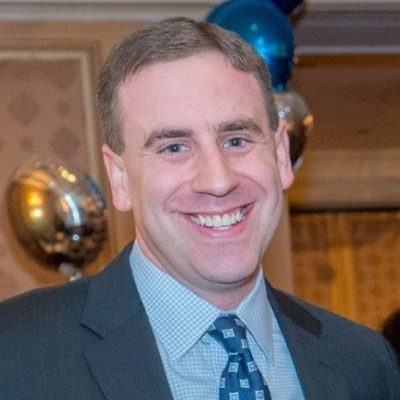Daw Aung San Suu Kyi, Nobel Peace Prize laureate and leader of Burma’s National League for Democracy, wrote an article in 2012 entitled “Word Power,” where she argues that “Words can move hearts, words can change perception, can set nations and people in powerful motion.”[1]
The Burmese government also recognizes the power of words, and is using this power to dominate and destroy one of Burma’s religious and ethnic minorities. The government is persecuting the Rohingya Muslims, engaging in acts that are tantamount to genocide.[2] As part of this campaign of terror, the government is attempting to erase the word “Rohingya” from the nation’s vocabulary. This is an act of ultimate cynicism and cruelty that uses the power of words to obliterate. In a call for help, the Rohingya need leaders around the world to say their name in an effort to affirm the people’s identity and very right to exist.
Unfortunately, many political leaders fail to give voice to the oppressed in the face of genocide. Although “Never Again” remains a cry by the Jewish community, the fact is that since the Holocaust, acts of genocide have taken place in Cambodia, Rwanda, East Timor, the Kurdish region of Iraq, the former Yugoslavia, and the Darfur region of Sudan. In fact, U.S. Ambassador Samantha Power argues in “A Problem from Hell” that even in the United States, “the forward-looking, consoling refrain of ‘never again,’ a testament to America’s can-do spirit…proved hollow in the face of actual slaughter.”[3]
Too often, leaders respond to cries from oppressed peoples not with words that could potentially end the bloodshed, but rather, with a deafening silence. Instead, we must all work to align our words with our deeply held beliefs to move the people and nations of the world to take action.
When we think about the plight of the Rohingya through the lens of the Torah, Parashat Vayigash helps us recognize that we can demonstrate such leadership, even where we have failed in the past. Last week’s parashah concludes with Joseph, disguised as an Egyptian viceroy, accusing his brother Benjamin of stealing, forcing the remaining brothers to decide whether or not they will come to Benjamin’s defense. Parashat Vayigash opens with Judah pleading to Joseph to enslave himself rather than Benjamin, to protect his father from heartbreak: “For how will I go to my father if the boy is not with me?”[4]
Judah’s action is radical for a character who previously stood by in silence in the face of the suffering of a family member. In an earlier parashah, Judah mistreated his daughter-in-law Tamar by denying her right to remarry his son after the death of her husband, and nearly allowing her to be publicly executed. Judah did eventually speak up for Tamar, but only after she came to him in a great act of desperation. Perhaps that incident changed Judah, as he redeems himself as a moral actor in this parashah, speaking out to protect Benjamin. In a moment when he could have lost his brother for good, Judah found his moral voice and used it. He becomes the brother who reunites Jacob’s family, and, for the first time in the Torah, shows that each of us is our brother’s keeper. We can learn from Judah that even where we have failed to speak out previously, we can muster the strength, dignity and courage to do so today.
In his November visit to Burma, President Barack Obama showed tremendous moral courage and dared to utter the word “Rohingya” before the Burmese government.[5] At the same time, Aung Sung Suu Kyi, the same person who was willing to live under house arrest for leading a democracy movement in Burma, has been unable to say ‘Rohingya’ in public.[6] We must recognize that the only way to stop a genocide in Burma is to continue making the Burmese government “uncomfortable,” as a recent report from the US Commission on International Religious Freedom suggests,[7] by putting pressure on leaders around the world to say ‘Rohingya’ and speak out for those voices has been suppressed.
Words are powerful, and like Judah, we must use them to thwart attempts to oppress the powerless. We must challenge our leaders to give voice to those who are suffering from atrocities, refusing to allow them to suffer in silence. Only by employing leadership through our words, and allowing them to move us all to action, can we ensure that genocide and other injustices will not continue under our watch.
[1] Brian Pellot, “Why won’t Aung Sang Suu Kyi say the word ‘Rohingya’?,” Religion News Service, 4 December 2014, http://www.religionnews.com/2014/12/04/wont-aung-san-suu-kyi-say-word-rohingya-commentary/.
[2] For more information, see “All You Can Do is Pray”: Crimes Against Humanity and Ethnic Cleansing of Rohingya Muslims in Burma’s Arakan State (Human Rights Watch, 2013), and “I Thought They Would Kill Me”: Ending Wartime Torture in Northern Myanmar (Fortify Rights, June 2014)
[3] Samantha Power, “A Problem From Hell”: America and the Age of Genocide (New York, New York: Perennial, 2003), 513.
[4] Genesis 44:33-34.
[5] Todd Pitman and Julie Pace, “Obama says ‘Rohingya,’ displeasing Myanmar hosts,” Associated Press, 14 November 2014, http://bigstory.ap.org/article/37d0b4b596d34d0f8e831109ae5636f1/group-obama -say-rohingya-myanmar-visit. President Obama’s entire quote was, “Discrimination toward the Rohingya or any other religious minority, I think, does not express the kind of country, over the long term, that Burma wants to be.”
[6] See footnote 1.
[7] Burma: Religious Freedom and Related Human Rights Violations are Hindering Borders Reforms. Findings from a Visit of the U.S. Commission on International Religious Freedom (Washington D.C.: U.S. Commission on International Religious Freedom, 2014), 11.

